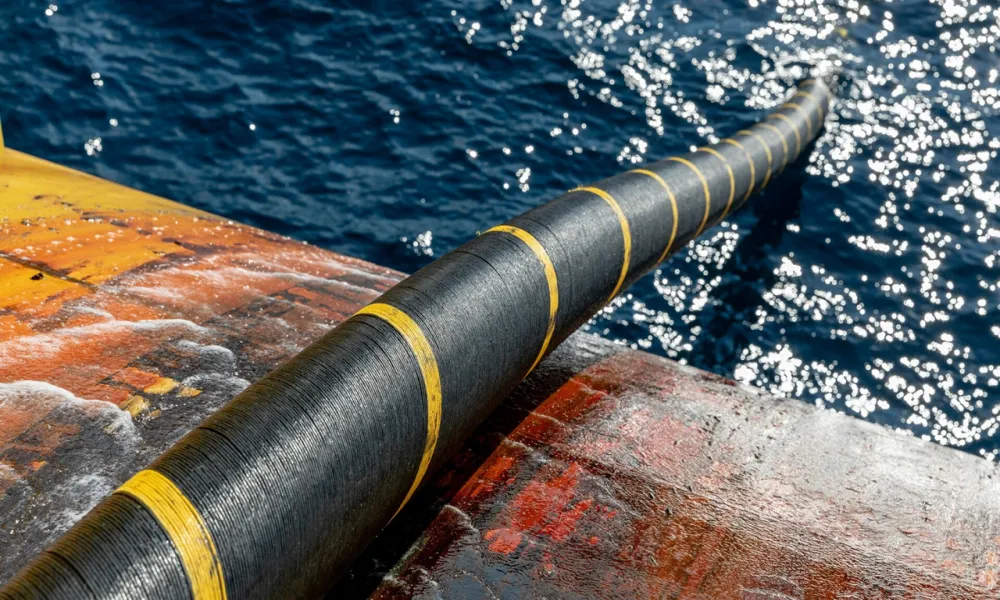The condition set by Cyprus for releasing €25 million to ADMIE, the completion of seabed surveys, has further complicated the already fraught issue of the Cyprus-Greece electricity interconnection. At the same time, Greece is awaiting final permits from Cyprus’s energy regulator RAEK before issuing a NAVTEX to begin the seabed mapping.
Cyprus shifts responsibility to Athens
“There are no disagreements with the Greek government. There are obligations that ADMIE has undertaken, and for the project to be viable, these obligations must be implemented,” President Nikos Christodoulides said on Thursday, a point reiterated the following day by government spokesperson Konstantinos Letymbiotis.
The fulfilment of these obligations is a prerequisite for the disbursement of the €25 million to ADMIE, intended to cover investment costs. Nicosia argues that in the past 11 months ADMIE has made no substantial progress. To protect taxpayers, Cyprus broke down its €125 million contribution to the project into five instalments, ensuring stricter oversight.
What the government refers to as ADMIE’s obligations essentially comes down to carrying out the seabed surveys. While acknowledging the complexity of the task, officials say the absence of tangible work undermines the project itself. Although NEXANS is building the cable and ADMIE has spent €250 million, Nicosia does not see this as evidence that the project is advancing. Reports that NEXANS may consider selling the cable to Brazil as a “Plan B” have deepened concerns.
Points of tension between Athens and Nicosia
This condition has effectively created a clash between Athens and Nicosia for two reasons.
First, Greece has made clear it is ready to proceed with the surveys, disregarding Turkey’s objections—even if this risks triggering a crisis. Greek officials speak of a difficult autumn ahead in Greek-Turkish relations, although some suggest Ankara may ultimately refrain from reacting.
Second, Greece expects the Cypriot authorities, specifically RAEK, to issue ADMIE both the ownership licence and the interconnection line operator licence. These permits are necessary not only for progressing the project but also for ADMIE to receive revenue from Cyprus. This requirement was included in RAEK’s decision approving the €25 million payment to ADMIE for January–December 2025.
In other words, before Athens assumes the risk of Turkish backlash, it wants to see Cyprus honour commitments made a year ago under a bilateral agreement.
Greek frustration at Cypriot hesitation
This explains the wave of critical remarks from Greek officials in response to comments by Cyprus’s Finance Minister Makis Keravnos, who questioned the project’s viability in an interview with Kathimerini Cyprus. To Greek officials, Cyprus appears to be undermining the project at the very moment Athens is prepared to shoulder the full geopolitical risk of a confrontation with Turkey.
Greek Environment and Energy Minister Stavros Papastavrou told state broadcaster ERT: “It is imperative that the Cypriot side clarifies its position.”
Keravnos, speaking on 1 August to Politis radio, publicly expressed strong doubts about the project’s viability for the first time. He revealed that he holds two studies from “very serious and reliable independent institutions,” both concluding the project is not viable.
By tying the project’s viability, and Cyprus’s financial commitments, to the completion of seabed surveys, Nicosia has effectively raised the political stakes. Pressure on Cyprus is expected to intensify.
So far, seabed surveys have only been carried out within Greek territorial waters. They have not been conducted in international waters due to Turkish objections. However, Athens has already signalled it intends to issue a NAVTEX for surveys “in the coming period,” with Foreign Minister Giorgos Gerapetritis declaring that Greece “will protect and exercise its sovereign rights in the field,” adding that “all scenarios are on the table.”
Commission urges immediate progress
Meanwhile, the European Commission has called on all parties to commit to the project’s swift implementation. “Any further delay is to the detriment of the stakeholders, particularly Cyprus, the main beneficiary of this project,” said EU energy spokesperson Anna-Kaisa Itkonen. She stressed that the project had already undergone extensive vetting to prove its viability before securing EU funding.
EPPO confirms investigation
The European Public Prosecutor’s Office (EPPO) has confirmed that it is investigating the electricity interconnection project. No further details have been provided at this stage, in order “not to jeopardise the outcome of the investigation.”
